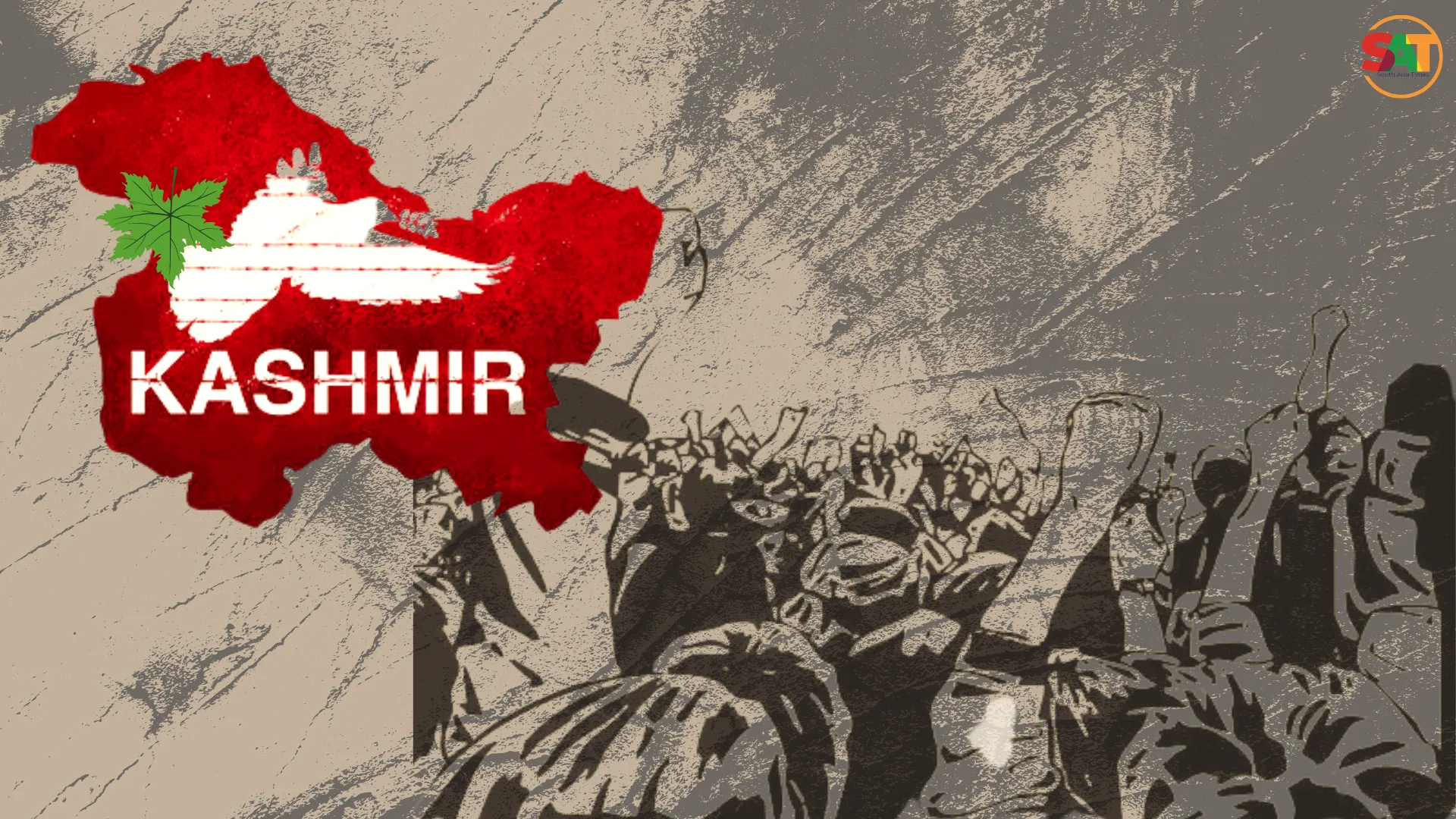Is the attack on the Indian Army vehicle in Poonch, claimed by Kashmiri resistance, an act of terrorism or insurgency? In recent news, an attack on an Indian Army vehicle in Poonch, Jammu, and Kashmir on April 20, 2023, has sparked a debate. Some argue that the attack is an act of terrorism. Others believe it is a legitimate response to the Indian occupation of Kashmir.
Kashmir: On India
Historically, the Indian government’s policies on Kashmir have been highly controversial. The scrapping of Articles 370 and 35A in August 2019 further ignited the Kashmiri struggle for autonomy and self-determination. Critics widely view the move as counterproductive, believing it only fuels the resistance movement further.
For decades, the Indian government has occupied the region of Jammu and Kashmir, denying the Kashmiri people their right to self-determination. Now, the Indian government’s attempts to normalize the situation in Kashmir through events like the G20 are futile and misguided.
The recent attack on the Indian army convoy in Poonch is a clear message that the conflict cannot be resolved until the Kashmiri people’s right to self-determination is recognized.
Kashmiri Resistance: Unpacking Debate – Terrorism or Insurgency?
The Kashmiri resistance is not just a band of “terrorists,” as the Indian government claims and the Indian media portrays. Instead, deep-rooted grievances against Indian occupation drive the insurgency. The use of the “terrorist” label is a calculated move to delegitimize the resistance and distract from the rampant human rights violations occurring in the region. Indigenous groups like the People’s Anti-Fascist Force (PAFF) and The Joint Kashmir Front (JKF) mainly lead the fight. Kashmiris are struggling to reclaim their rights in the face of overwhelming oppression and persecution from Indian authorities.
This incident carries significant implications, particularly in light of several upcoming international events in India. These events include the Shanghai Cooperation Organization (SCO) meeting on May 4-5, 2023. Additionally, the G20 Tourism Working Group meeting is scheduled in Srinagar, the summer capital of Indian-administered Kashmir, on May 22-24. Additionally, organizers have scheduled two consultative forums on youth affairs (Y-20) to be held in Leh and Srinagar. Last, but not least, the recent statements by Satya Pal Malik, former governor of Indian-Illegally Occupied Jammu and Kashmir, which “vindicate” Pakistan’s stance on the 2019 Pulwama attack, have also raised questions about the Modi-led BJP Government in India.
The Indian government’s heavy-handed approach to quelling the movement has only led to further violence and unrest in the region.
International Crisis Group Warns of Kashmir Policy Risks
The International Crisis Group, a global think tank, has warned that the Indian government’s policies in Kashmir could lead to “disastrous consequences.” They have called for a serious “rethink” of these policies and a move toward a more inclusive approach.
Therefore, it is crucial to understand that indigenous people, not external forces, drive the resistance movement in Kashmir. This movement is definitely not a new development. It has been ongoing for decades, and it is a response to the illegal Indian occupation of their land. The resistance movement is rooted in the history and culture of the Kashmiri people.
Towards Resolution: Pakistan, India, and International Community
While India attributes the surge in militancy over the last three decades to Pakistan-based jihadist groups, the International Crisis Group’s report, Raising the Stakes in Jammu and Kashmir, contends that the underlying causes of the Kashmiri resistance movement are internal. Thus, it is imperative to acknowledge and comprehend this aspect of the struggle, which continues to be a significant concern for the Kashmiri people.
Despite the complexities of the Kashmir conflict, it’s clear that the indigenous resistance movement is fighting for their right to self-determination, as guaranteed by the United Nations (UN) charter.
While having an established stance on Kashmir, it’s important for Pakistan to support the Kashmiri people morally and diplomatically. However, it’s worth noting that Pakistan has been vocal about the Kashmir issue and has supported the resistance movement, which is in contrast to their lack of support when their own elites abandoned the Kashmiri cause.
The international community must recognize the legitimate grievances of the Kashmiri people and support their right to self-determination. The Indian government must recognize the legitimate grievances of the Kashmiri people and engage in meaningful dialogue toward a peaceful resolution to the conflict. It is time for all parties involved to take steps towards peace and stability in the region.







![Ukrainian and Russian flags with soldier silhouettes representing ongoing conflict. [Image via Atlantic Council].](https://southasiatimes.org/wp-content/uploads/2026/02/2022-02-09T000000Z_1319661209_MT1NURPHO000HXCNME_RTRMADP_3_UKRAINE-CONFLICT-STOCK-PICTURES-scaled-e1661353077377.jpg)